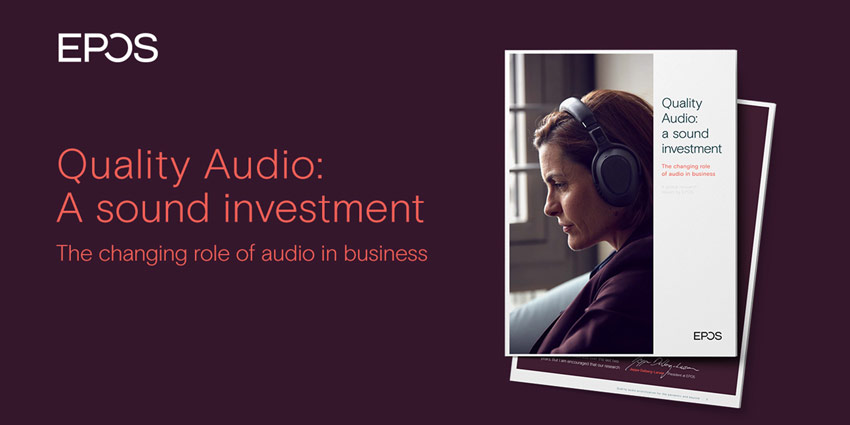When we’re out of each other’s direct line of sight in the workplace, being able to hear one another clearly and distinctly bridges the distance, and develops new importance of quality communications — according to the 2000+ decision-makers EPOS surveyed in September 2020, across the US, EMEA and APAC regions.
As businesses of all kinds adopt long-term strategies for hybrid and distributed workplaces, investment in high-quality audio equipment is only set to increase. 79% of those surveyed described audio communication as very important to their business, and this consensus was consistent whether reflecting on internal team communications, or liaison with clients and external stakeholders.
The sound of high quality
When it comes to sound, businesses are prepared to spend more on improved quality, and 57% of business leaders surveyed expect investments in audio equipment to increase over coming years — despite the competitive economic environment we are regularly reminded is only just beginning to take effect.
“Businesses are going through a turbulent time, with many companies seeing a negative impact as a result of the current health landscape, but if they want to survive, they need to recognise that working with UC is one of the investments you really need to make to stay in business”, explained Jeppe Dalberg-Larsen, President at EPOS, in the research report.
“We are seeing our customers prioritising quality solutions where they might have been using more inexpensive models in the past. Now is the time for business leaders to ensure they have the right technology for the tailored experience that will help them deliver on their goals”

Superficially it’s easy to get distracted by the surge in adoption of video calls during the 2020 remote work revolution, but we should remember that the visual component of the call is still in most cases a ‘nice to have’ factor, and even in national media broadcasts, the quality varies hugely. A low-res webcam doesn’t matter too much though because the meat of the communication itself takes place through the words being spoken. If a video call is at all glitchy, we’ll all turn our cameras off and preserve bandwidth for the spoken word, which is what the conversation truly depends on. Tolerance for any lack of quality in the audio though is declining rapidly, because it interrupts the transmission of the message, and you don’t know what you didn’t hear. As Dalberg-Larsen summed it up, “The 0.5% of what you miss during a call becomes 100% of your concern,” underlining EPOS’ research conclusion earlier this year, that ‘what…?’ is indeed the most expensive word ever uttered in business.
Investing in the future of effective communication
It is, therefore, unsurprising that 64% of EPOS’ respondents have come to view the quality of their audio technology as more important than the quality of their laptop or PC equipment, in enabling good communication with clients. Maintaining client relationships is so critical, particularly during times of uncertainty, that larger organisations, in particular, are investing in audio upgrades on an annual basis (34% of those in the 10,000 employees or greater category).
As we move into hybrid working on a longer-term basis, a new generation in the workforce may never know the crammed commuter transit and overcrowded office spaces that many are nostalgic for. But they will need to connect, communicate and collaborate seamlessly and without friction, from wherever they are.
Hearing and speaking to each other with crystal clarity is the foundation for all of the above, and these research findings highlight that forward-thinking decision-makers are clear about their priorities, for investment in quality audio experiences: providing equipment to their teams which is safe, comfortable, enjoyable, and sustainable to use.
To learn more about the EPOS survey, conducted in conjunction with independent consumer research bureau Sapio, you can download the full report here.







